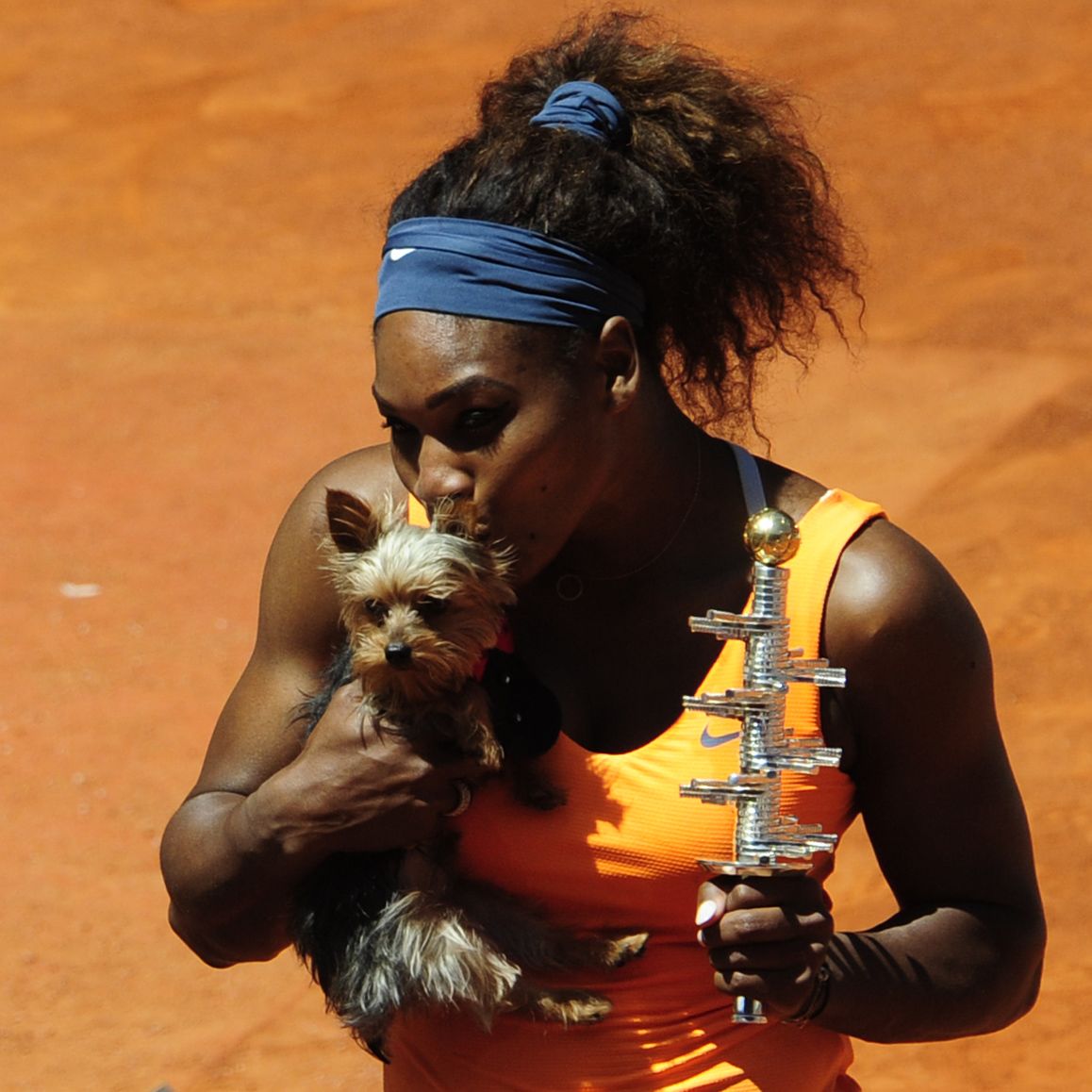Collins' "Ugly Dog" Controversy: From Tennis Champions to Metaphors for the Ages of Ugly Culture
The 2025 WTA Miami 1000 has kicked off, and as the defending champion, American star Collins' dog Mr. Q has attracted attention from the outside world, as early as last year's championship Collins caused controversy over this messy "ugly dog". Although Collins did not respond to the matter publicly, this turmoil is like a prism, reflecting the alienation of hidden social values and the deformed spread of ugly culture behind the craze for "ugly" dog breeds such as Teddy, Poodle, Schnauzer, and Yoshak in contemporary society.

The Poodle has a long history of origin, and as its name suggests, it has always been popular with European aristocrats, but this does not hide its ugly appearance, and its wool curls and strange shape make it look like a "humanoid animal". This dog was born by packaging physiological defects into entertainment consumer products through curiosity displays. The so-called "ugly dog" carried by Collins is precisely the projection of this cultural symbol in the private sphere - when public figures use deformed dog breeds as personality labels, they are in fact participating in an unconscious conspiracy to judge ugliness. Also controversial is Serena Williams' Yoshak Dog, which is so ugly that it makes people sick to their stomachs, but it is very popular with young women in the United States. The flattened and curly hair of dog breeds such as Teddy and Schnauzer due to genetic defects was originally a product of the controversy over reproductive ethics, but it gave birth to a huge market due to the "ugly cute" label. The pet grooming salon launched the "fried hair" service, and the monthly sales volume of the e-commerce platform "Ugly Dog Periphery" exceeded 100,000 pieces. This commodification of physiological abnormalities is the same logic as the logic of the dogs who were photographed wearing diamond-encrusted collars during the Collins Games: competing for attention capital through exaggerated visual symbols.

At the moment of refined aesthetic fatigue, some groups deliberately pursue the contrasting experience of "ugliness is beauty". As Collins fans defended it: "Her dogs, while ugly, are more real than the cookie-cutter racedogs." The essence of this argument is a nihilistic deconstruction of the traditional aesthetic system, which is in line with the underlying logic of Internet celebrities who win traffic by pretending to be ugly. According to the data, the topic of "ugly dog" on the Douyin platform has reached 23 billion times, and the average number of likes of schnauzer-related videos exceeds that of golden retrievers by 47%. The middle class completes class segregation by raising "ugly dogs": buying poodles with questionable pedigree needs to pay tens of thousands of yuan for "quality differences", and the annual fee for participating in the "ugly dog beauty pageant" club exceeds 50,000 yuan. This "uglier the more expensive" paradox of consumption is just like the bottom of society represented by Collins's father, an 81-year-old garden worker who still mowed the lawn under the scorching sun, trying to achieve dignity compensation through the "counterattack narrative" of his children. When Collins appeared on the cover of the magazine with an ugly dog, he was actually tying up athletic achievements with deformed aesthetics to build a new type of cultural capital.

According to the study, 72% of owners of "ugly dogs" (especially Teddy) admitted to receiving complaints from their neighbors because their pets were noisy and aggressive, but refused to modify their behavior, instead rationalizing the problem on the grounds of "unique personality". This mirrors Collins' attitude when confronted with retirement doubts: "I don't need to explain, it's my choice. When the norms of civilized dog breeding are deconstructed as "repressive nature", the essence is to expose the value of some groups that put personal freedom above public order and lose their value.

In order to meet the needs of "ugly cute", the kennel inbred Teddy, resulting in 60% of individuals suffering from patellar dislocation; Poodles have an 83% chance of respiratory diseases due to skull deformities. This act of aestheticizing animal suffering is in stark contrast to Collins's "inspirational narrative" of competing despite endometriosis: when the dignity of life gives way to utilitarianism, society has fallen into the quagmire of moral relativism. In a community in Shanghai, 13 neighborhood conflicts were triggered by teddy dogs excreting everywhere and schnauzers barking late at night, which eventually turned into poisoning and retaliation. Such cases reveal that the "ugly dog" is not only an aesthetic issue, but also a touchstone for civilization. Just as Collins fans shout "come on" in the arena to disrupt their opponents, and owners connive at pets to disrupt public order, the essence is the restoration of the law of the jungle in modern society. This value dislocation is exactly as Hegel said: "Everything that is realistic is reasonable" - when the judgment of ugliness becomes the mainstream, civilization will lose the ability to correct itself.

Collins's "Ugly Dog Scandal" shouldn't stop at entertainment talk. When we like deformed dogs on social media, pay for genetic defects in pet stores, and tolerate uncivilized dog breeding in the community, we are actually participating in the collective decline of social values. In order to curb this "plague of ugliness", it is necessary to reconstruct the understanding of bioethics from the educational side, severely punish illegal reproduction and disturbance behavior at the legal side, and everyone needs to reflect: what kind of civilization legacy do we want to leave for the next generation? Just as Collins delayed his retirement for the dream of childbearing, the rebirth of human civilization also needs to go beyond short-sighted utilitarianism and return to the eternal pursuit of truth, goodness and beauty.(Source: Tennis Home Author: Xiaodi)







 Links
Links
 Contact
Contact
 App
App


